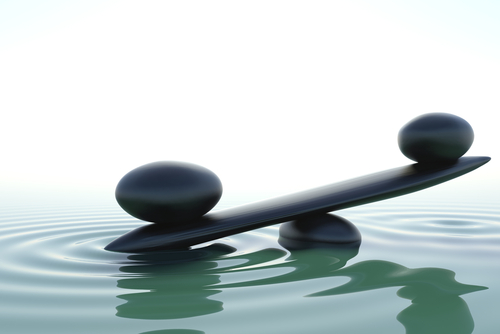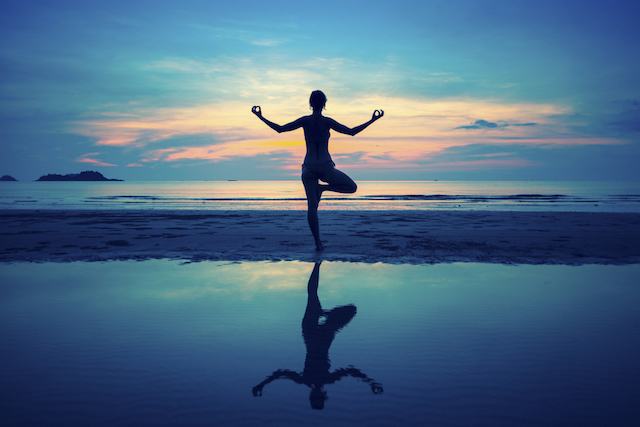The ancient Romans had terms for a duality that persists to this day. They referred to ”vita contemplativa” versus ”vita activa” — the contemplative life vs. the active life.
 For the vast majority of people living in the West, and increasingly in the East as well, this duality (which is false on the face of it) has been settled by circumstances. The pressures of post-modern life have resolved the dilemma in a perverse way. Who has time to devote a significant portion of their days to contemplation, except the few remaining relics manning the monasteries?
For the vast majority of people living in the West, and increasingly in the East as well, this duality (which is false on the face of it) has been settled by circumstances. The pressures of post-modern life have resolved the dilemma in a perverse way. Who has time to devote a significant portion of their days to contemplation, except the few remaining relics manning the monasteries?
Despite the scads of people going on ‘spiritual retreats,’ few seem to gain anything more than a few days respite from their obsessively busy lives. And what’s the point of recharging one’s batteries just to get back onto the gerbil wheel?
No doubt it has something to do with that magic word, ‘busy.’ Busyness, it seems, is the greatest escape and best excuse of all. ‘I’ve been so busy’ conveys many messages. And it almost always elicits absolution.
Being very busy implies a subtle victimhood, as in ‘there are so many demands on me I don’t have time to myself.’ Another facet of the phrase implies self-importance—‘I have many important responsibilities, and so many people require my time.’
When I hear someone utter this post-modern mantra, I think of Shakespeare’s line, “The fault, dear Brutus, is not in our stars, but in ourselves, that we are underlings.”
Usually the word ‘balance’ connotes juggling the demands of society with one’s own egoic desires. That’s always seemed a perverse prescription for living to me, especially living in a dead culture. How do you ‘balance’ deadness with life? You don’t; you adapt to the deadness by becoming inwardly dead yourself.
In considering ‘vita contemplativa’ and ‘vita activa,’ true balance is essential. And that varies from person to person. Every person on the path to growing into a human being devotes some part of the day to solitary communion with nature and God, in whatever form we can find the former, and to whatever degree of formlessness we intuit the latter.
Of course one first has to end the idea that busyness is a virtue. Contemplation and activity are not an either/or proposition; both are necessary for a healthy and balanced life.
Whoever said, “idle hands are the devil’s workshop” must have been a faithful servant of hell. It’s the perfect motto for consumeristic enslavement. Though I don’t know its origin, the bromide has a Puritanical odor to it. It befits the culture that came to dominate the New World, and in recent years, the entire world.
Actually, the opposite is true—busy hands and busy minds are the devil’s workshop. The less time for reflection, for simply sitting still and observing the movement of nature, oneself and the world, the more swept up in the stultifying produce-and- consume machine one is, and the more one is a conduit of the darkness in human consciousness.
In the past, Western religions, the bulwarks of morality and the status quo, mandated one day a week of rest and prayer. But supplication is not contemplation. And ritual, whether once a week or five times a day, is antithetical to direct experiencing of wholeness and holiness.
When I was young, it was a mortal sin to miss Mass on Sunday. One was literally condemned to hell for all eternity for not going to church that day!
My parents’ went ballistic when I came down one Sunday morning at 17 and said I wasn’t going to Mass that day or ever again. Even as a teenager, enshrining a day of the week to be religious seemed juvenile to me. I saw that reflection cannot be commanded, and reverence cannot be conditioned.
The Sunday silliness was underwritten by codifying the seeming duality of two essential aspects of our natures and right living. And in this age of widespread spiritual enervation, sustaining the duality between ‘vita contemplativa’ and ‘vita activa’ makes as much sense as continuing the division of the Dark Ages between monks, merchants and the masses.
A good life requires the right balance between contemplation and activity, just as it does between solitude and sociality. The line varies from person to person, even from one time in an individual’s life to another. However a country that makes no place for its best will be ruled by its worst.
So ordinary folks now face a choice—continue to go with the flow and be dragged down; or step out of the dark current and wash off for half hour during the day, through whatever enjoyable contemplative practice cleanses the muck and lightens the burden for you.
One has to insist on time and space for oneself (not for the self), to not be crushed by this world’s accelerating time and increasing destruction of space.
Martin LeFevre

